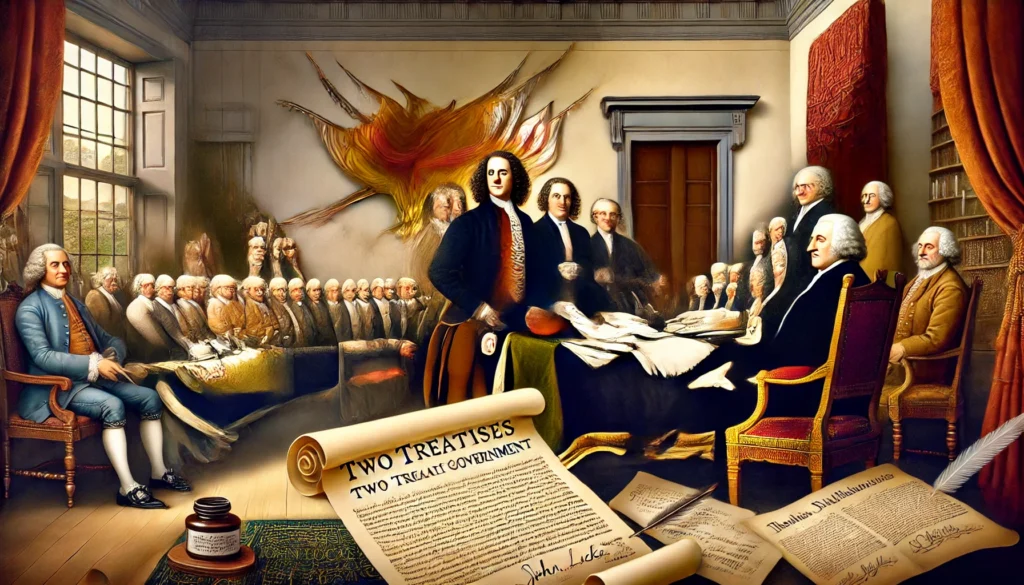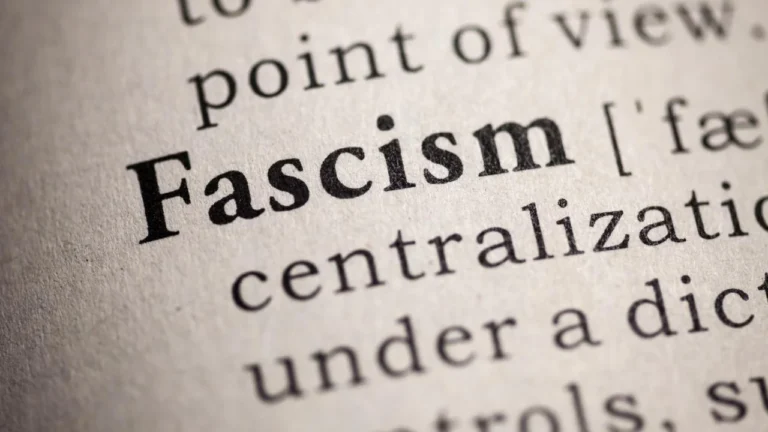John Locke’s Influence on the Declaration of Independence

John Locke’s influence on the Declaration of Independence is evident in the foundational principles that shaped this seminal American document. As an English philosopher and key figure of the Enlightenment, Locke laid the groundwork for modern liberal democracy. His concepts of natural rights, government by consent, and the right of revolution are directly reflected in the Declaration of Independence. This article delves into the specifics of Locke’s impact, offering concrete examples and supporting bibliographical references to illustrate how his ideas informed the core values of American political thought.
1. John Locke’s influence on the Concept of Natural Rights
One of Locke’s most significant contributions was, indeed, his theory of natural rights. Specifically, in his “Two Treatises of Government,” Locke argued that all individuals are born with certain inalienable rights, including life, liberty, and property. Similarly, the Declaration of Independence mirrors this concept, with Thomas Jefferson famously writing that all men are endowed with “unalienable Rights” including “Life, Liberty and the pursuit of Happiness.
Example:
- Locke’s original formulation of natural rights influenced Jefferson’s wording and the emphasis on individual liberty.
2. Government by Consent
Locke believed that legitimate government is based on the consent of the governed. Moreover, this idea is pivotal in the Declaration of Independence, which asserts that governments derive “their just powers from the consent of the governed.” Consequently, this principle directly challenged the divine right of kings, which was a prevalent justification for monarchical rule at the time.
Example:
- Jefferson’s assertion of the need for government to have the consent of the governed was a direct application of Locke’s social contract theory.
3. Right of Revolution
Locke argued that if a government fails to protect the natural rights of its citizens, the people have the right to overthrow it. The Declaration of Independence echoes this sentiment, stating that “whenever any Form of Government becomes destructive of these ends, it is the Right of the People to alter or to abolish it.”
Example:
- The American colonies’ justification for seceding from British rule was heavily influenced by Locke’s idea of the right of revolution.
4. Separation of Powers
While Montesquieu is more commonly credited with influencing the separation of powers, Locke, too, advocated for a government structure that prevents the concentration of power. Indeed, this principle significantly shapes the structure of American government, ultimately appearing more elaborately in the Constitution than in the Declaration of Independence.
Example:
- Locke’s ideas about limiting governmental power influenced the philosophical foundation of American political structures.
Specific Examples on John Locke’s Influence on the Declaration of Independence
The Declaration is replete with Locke’s influence. Here are some specific excerpts and their Lockean roots:
- Natural Rights: “We hold these truths to be self-evident, that all men are created equal, that they are endowed by their Creator with certain unalienable Rights…”
- Lockean Root: Locke’s assertion that natural rights are inherent and self-evident.
- Consent of the Governed: “…Governments are instituted among Men, deriving their just powers from the consent of the governed…”
- Lockean Root: The social contract theory, which posits that governments are legitimate only if they have the consent of the people.
- Right of Revolution: “…it is their right, it is their duty, to throw off such Government, and to provide new Guards for their future security.”
- Lockean Root: The idea that the people have the right to revolt against a government that fails to protect their rights.
Bibliographical References
- Stanford Encyclopedia of Philosophy: John Locke
- Internet Encyclopedia of Philosophy: John Locke
- Two Treatises of Government by John Locke (PDF)
- National Archives: The Declaration of Independence
- Library of Congress: Primary Documents in American History
- The Avalon Project: Declaration of Independence
- History Channel: Declaration of Independence
- John Locke Foundation
- University of Virginia: The Declaration of Independence
- Teaching American History: John Locke
- BBC: John Locke
- The Federalist Papers: Influence of John Locke
- Constitution Facts: John Locke
- Monticello: Jefferson and Locke
- Internet Modern History Sourcebook: John Locke
- The Philosopher’s Magazine: Locke and the Declaration
- Liberty Fund: John Locke’s Legacy
- Boston University: Locke’s Political Philosophy
- Stanford Encyclopedia of Philosophy: Political Theory of Locke
- University of Washington: Locke’s Influence on American Revolution
Conclusion
John Locke’s political theories were, without a doubt, a cornerstone for the Declaration of Independence. Moreover, his ideas on natural rights, the consent of the governed, and the right of revolution were instrumental in shaping the American colonies’ justification for independence from Britain. The Declaration of Independence not only reflects Locke’s influence but also serves as a testament to his enduring legacy in the development of democratic ideals. A detailed examination, backed by robust bibliographical references, clearly demonstrates how Locke’s philosophical doctrines intricately weave into the fabric of one of America’s most important documents.







